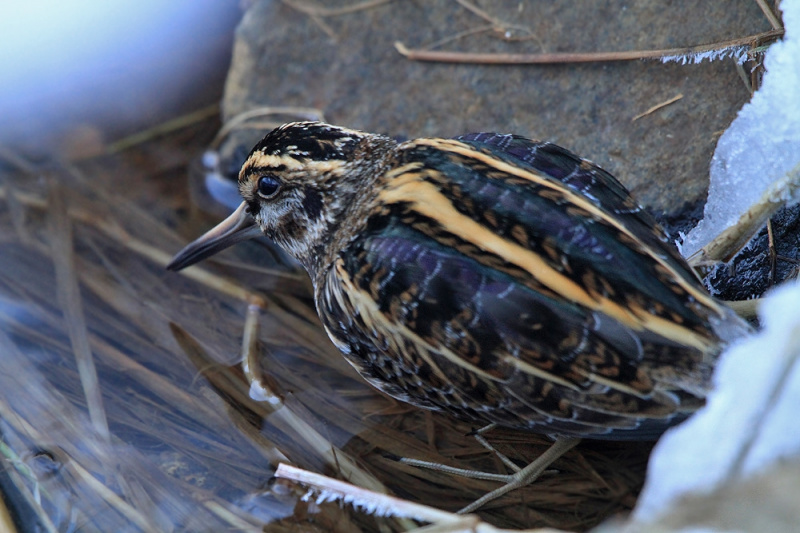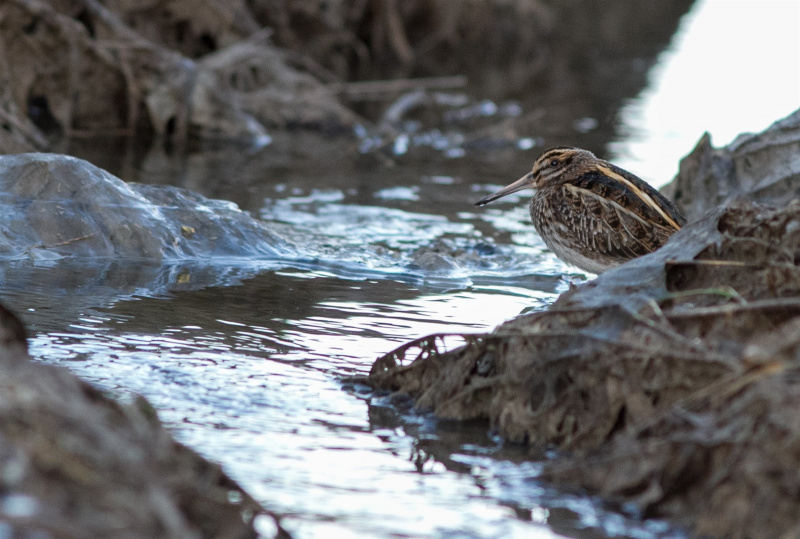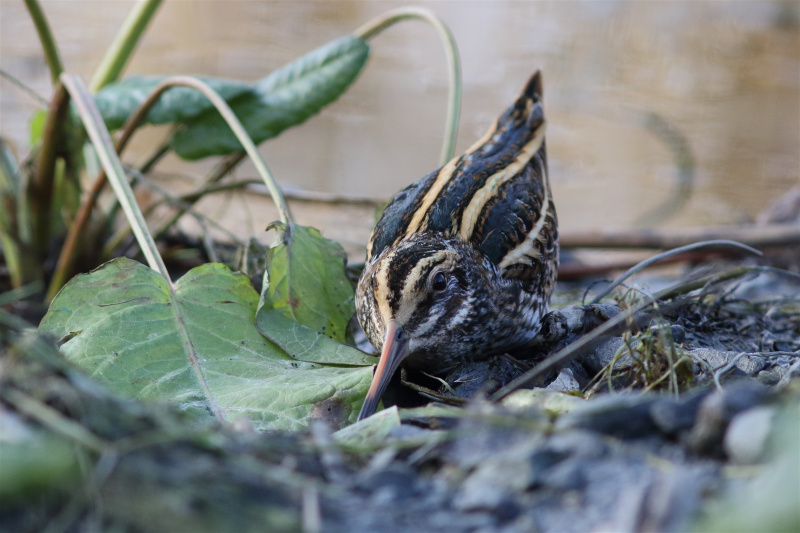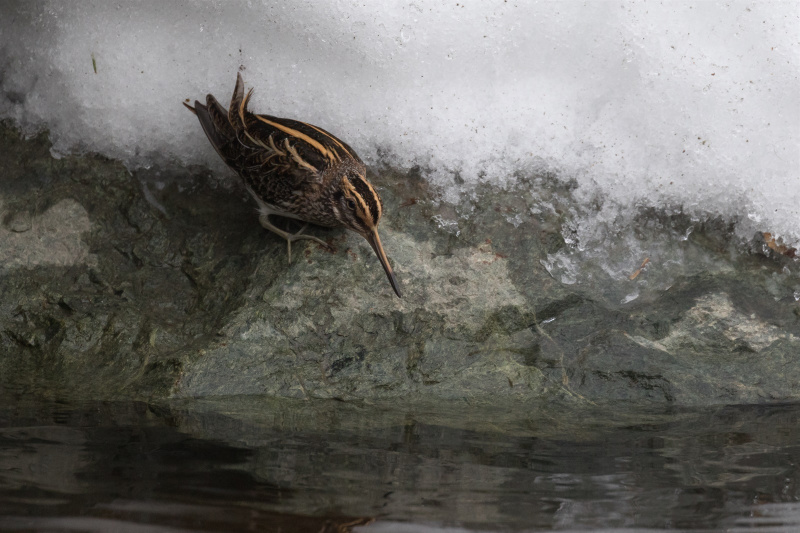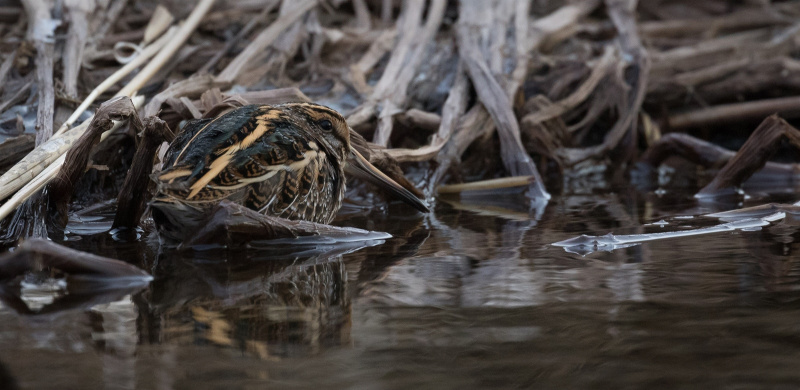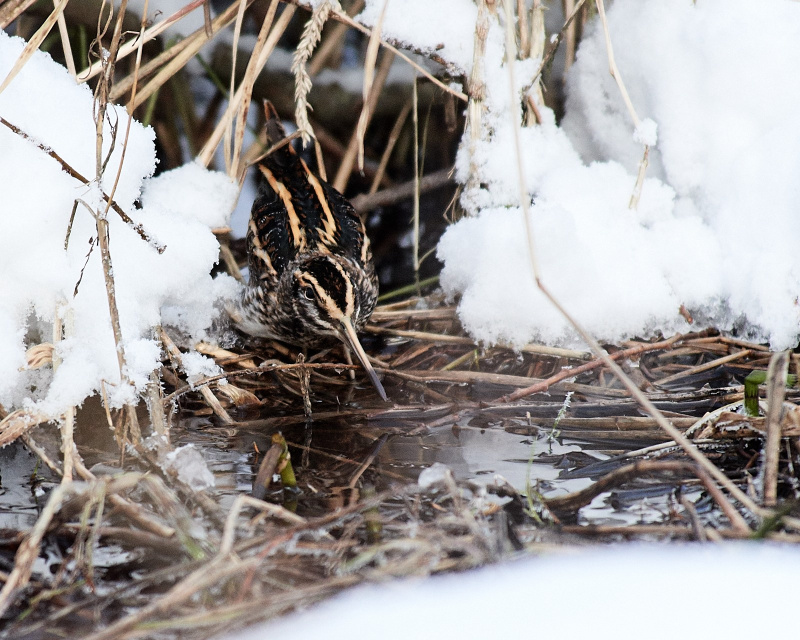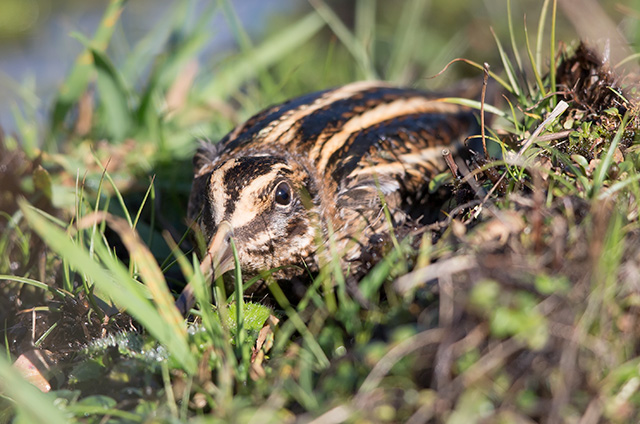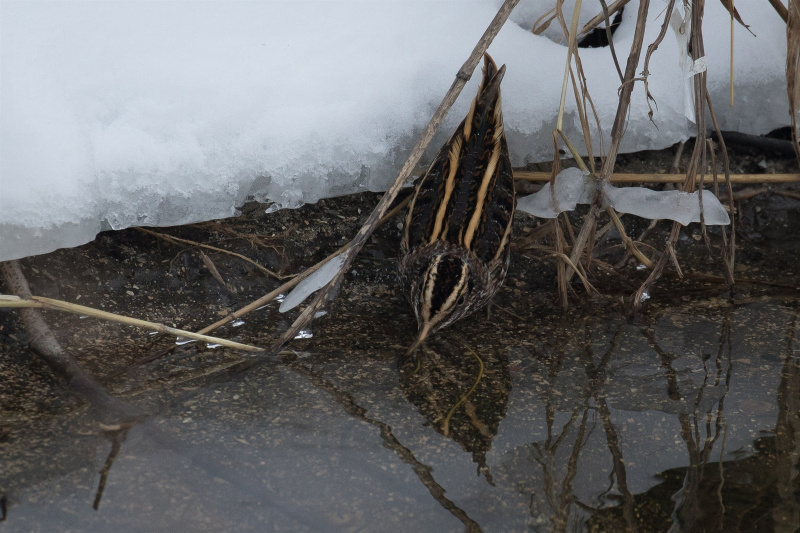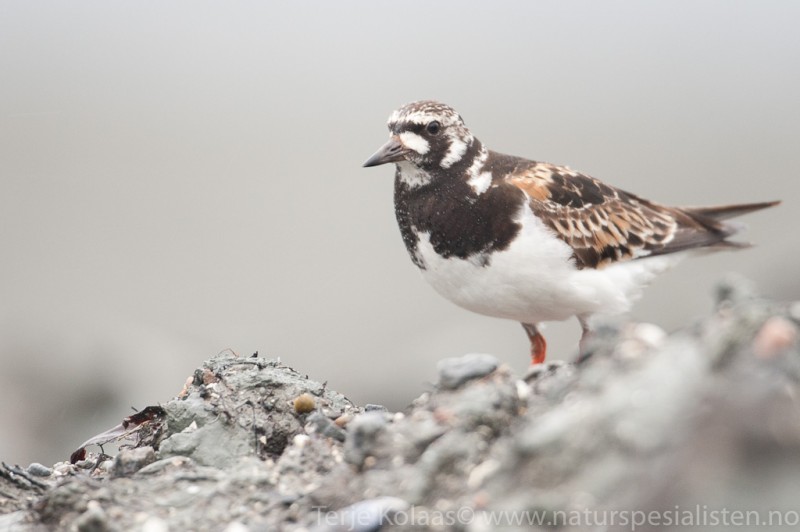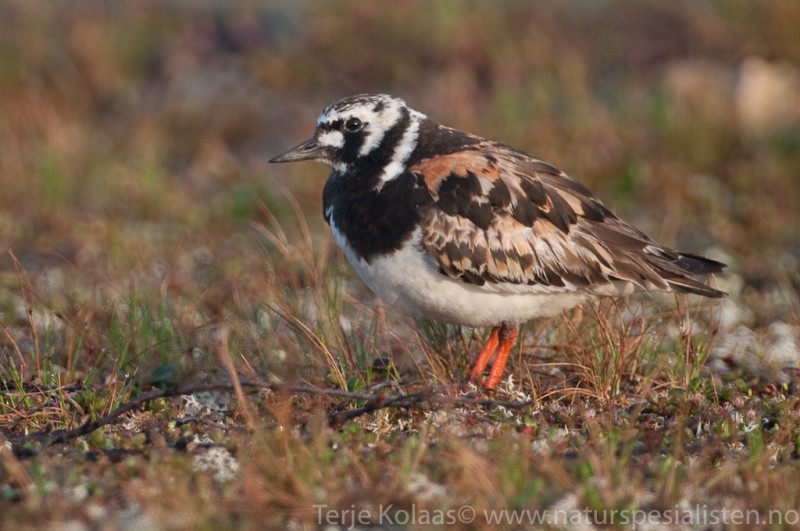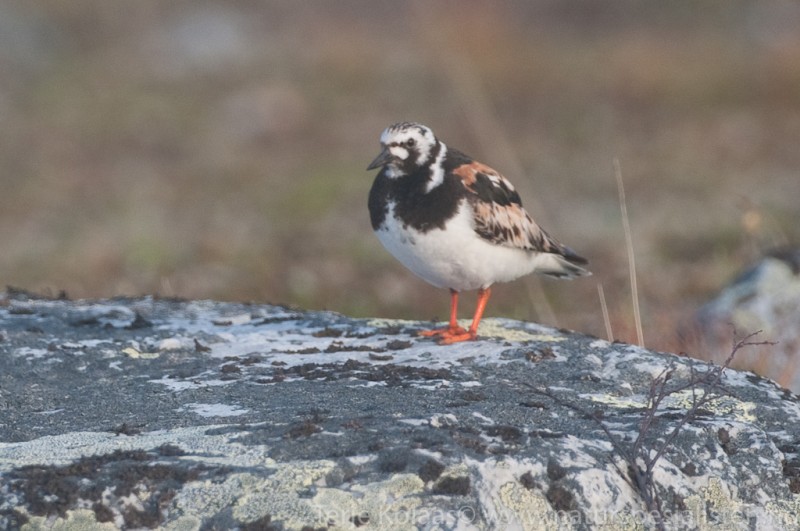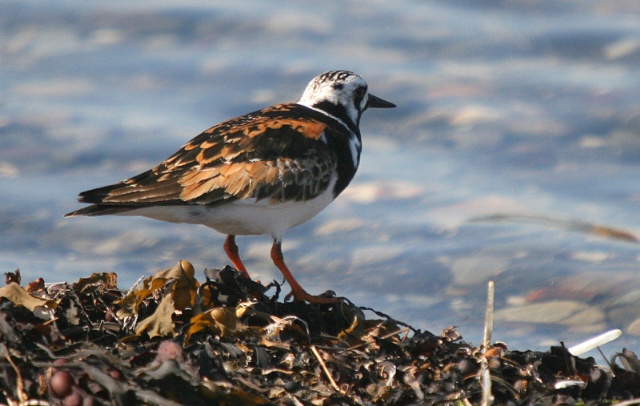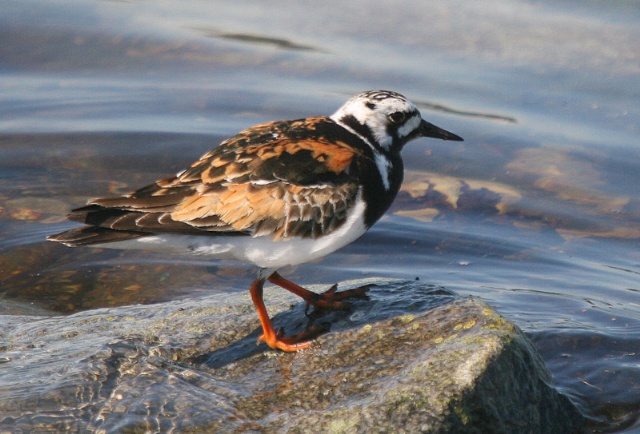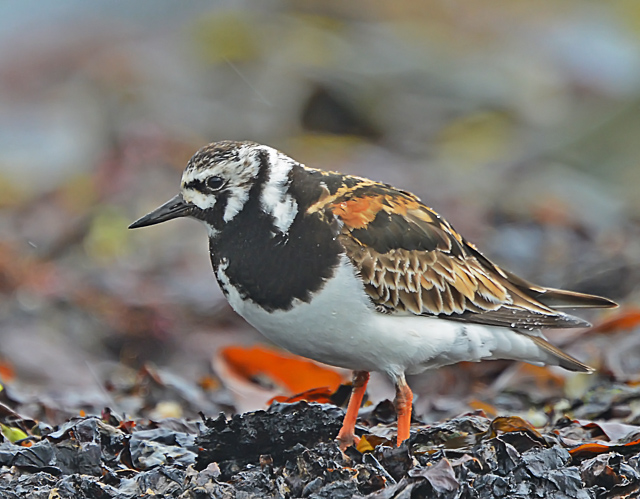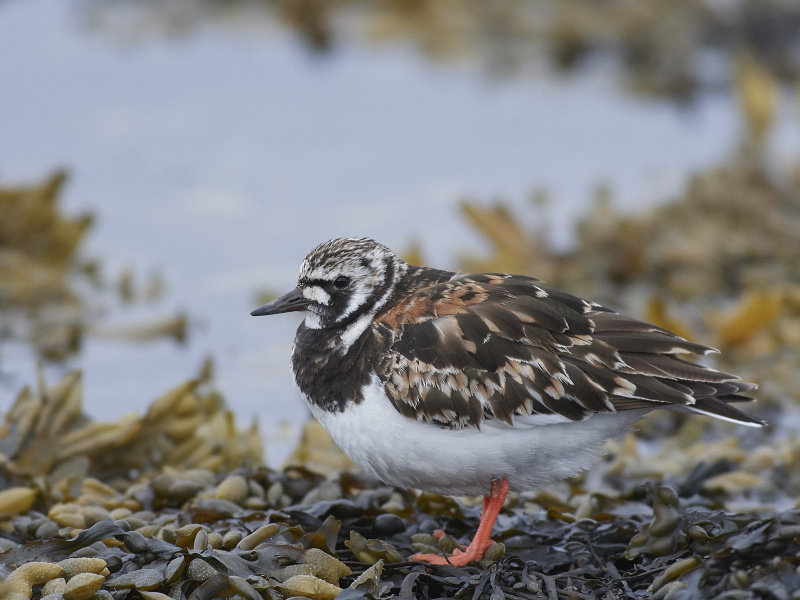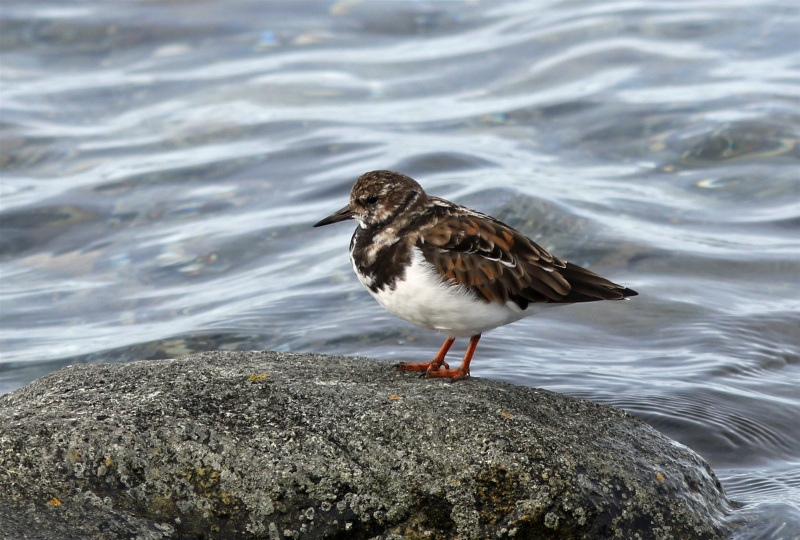Jack Snipe (Lymnocryptes minimus)
Ruddy Turnstone (Arenaria interpres)
Notably smaller, darker and with shorter bill than Common Snipe. Two prominent yellowish back-stripes. Dark wedge-shaped tail, and slightly rounded wings. Lacks median crown-stripe. Flanks spotted, not barred. Diagnostic behaviour: Usually flushed only at close range. Takes off silently, then quickly lands nearby. Whole body bounces rhythmically when feeding.
Sound:May occasionally give a harsh, nasal and rolling "reearrr" when flushed, but is usually silent. Display call a peculiar, cyclic and rhythmic sound performed in flight. Recalling a galloping horse in the distance. "Galloping" interspersed with cyclic, whistling, hissing sounds. Hard to locate when displaying. Seems both close and distant at the same time.
Song:
Distribution:
Xeno-canto: map
Ecology:Birdlife ecology
Links:
Observation.org Latest observations
Image search Flickr NB! May give other species
CCCC-photo:nhtbzk, Licence,Link,
Adults unmistakable. White head with bold black markings and orangy brown back. Even more striking in flight, with white wedge on back, large white patches at base of wings, white wing-bars and black and white tail. Juvenile and winter plumage birds with similar white patches, but with darker head and greyish, dark brown back. Underside always pure white. Leaves a robust and compact impression, with heavy bill and square head.
Sound:Characteristic call: An explosive, hard, resonant and short "koi" or "kott" with a peculiar timbre, usually given in rapid or accelerating series. Alarm call/song more "wader-like", a staccato "kuvi-kuvi-vit-vit-vitua".
Alarm call:
Distribution:
Wikipedia: map (se also Xeno-canto below)
Ecology:Birdlife ecology
Links:
Observation.org Latest observations
Image search Flickr NB! May give other species
CCSounds:Recorded by Niels Krabbe,http://www.xeno-canto.org ,CC license

 English
English Albanian
Albanian
 Armenian
Armenian
 Bulgarian
Bulgarian
 Catalan
Catalan
 Croatian
Croatian
 Czech
Czech
 Danish
Danish
 Dutch
Dutch
 Finnish
Finnish
 French
French
 Georgian
Georgian
 German
German
 Greek
Greek
 Hungarian
Hungarian
 Italian
Italian
 Latvian
Latvian
 Lithuanian
Lithuanian
 Macedonian
Macedonian
 Norwegian
Norwegian
 Polish
Polish
 Portuguese
Portuguese
 Romanian
Romanian
 Russian
Russian
 Sami : Lule sami
Sami : Lule sami
 Sami : North sami
Sami : North sami
 Sami : South sami
Sami : South sami
 Scientific names
Scientific names
 Serbian
Serbian
 Spanish
Spanish
 Swedish
Swedish
 Ukrainian
Ukrainian

